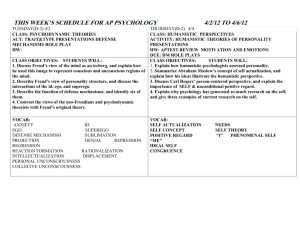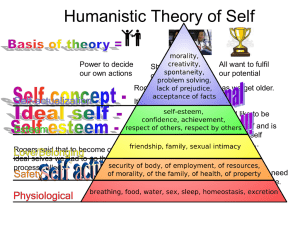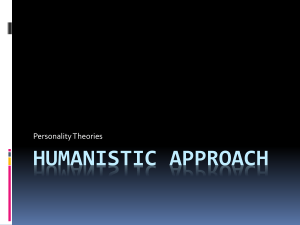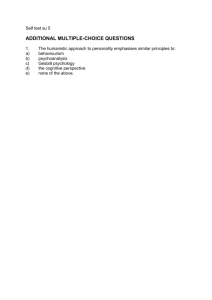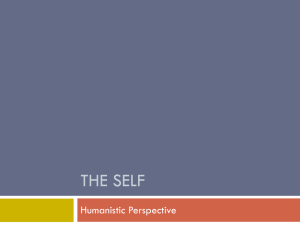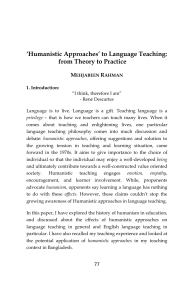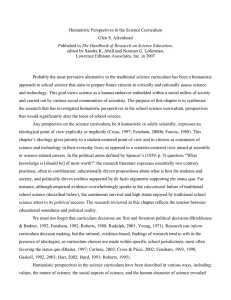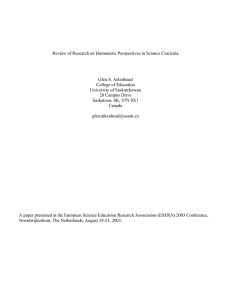File - N. Schollmeier's Educational Research
advertisement
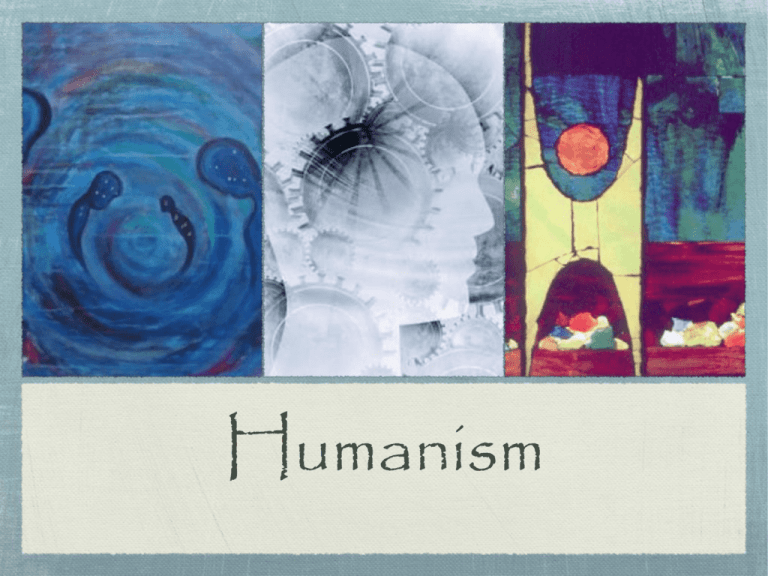
Humanism What is Humanism? Emerged in the 1960’s Belief that people are inherently good Studies the whole person Focuses in human freedom, dignity, and potential Learning is holistic Abraham Maslow 19081970 “Father” of humanistic psychology Motivation based on need Intrinsic drive Opposed Freud Emphasis on choice, creativity, and values Carl Rogers Person-centered approach Believed people are inherently good Positive environment for growth Self actualization Self Concept • Three Components: Self Worth (Self Esteem) Self Image Ideal Self Self Actualization To discover & understand self To express one’s self To find one’s passion & act on it To discover strengths, talents & develop them Use strengths to compensate for weaknesses Fully Functioning Person Occurs when self actualization takes place Person is well adjusted, balanced, and interesting Experiences and feelings are subjective Continuous growth and changing An ideal concept Characteristics of a Fully Functioning Person • Five Characteristics: Open to experience Existential living Trust feelings Creativity Fulfilled life Humanistic Education Student led Focus on student interest Teacher as facilitator Self evaluation Holistic Safe environment References: • McLeod, S. A. (2007). Carl Rogers. Retrieved from http://www.simplypsychology.org/carl-rogers.html • Deshler, J. David and E. Kiely. (1995). Facilitating Adult Learning Sourcebook. Department of Education, Cornell University. Cornell Instructional Media Service, pub. 420 Kennedy Hall, Cornell University, Ithaca, NY. • eCarvalho, R. (1991). The humanistic paradigm in education. The Humanistic Psychologist, 19(1), 88-104. • Huitt, W. (2001). Humanism and open education. Educational Psychology Interactive. Valdosta, GA: Valdosta State University. Retrieved September 11, 2007, from the URL: http://chiron.valdosta.edu/whuitt/col/affsys/humed.html. • Rogers, C., & Freiberg, H. J. (1994). Freedom to learn (3rd Ed.). New York: Macmillan. • Ashworth, Frank et al. : Learning Theories and Higher Education. Level3, Issue 2, June 2004. • Humanistic Psychology. Retrieved March 25, 2011. • Learning and teaching: Humanistic approaches to learning. Retrieved March 11, 2011. • Greenberg, G. A New Look at Learning. In Sudbury Valley School. The Sudbury Valley School Experience. The Sudbury Valley School, 1992. • Ashworth, Frank, Gabriel Brennan, Kathy Egan, Ron Hamilton, and Olalla Sáenz. Learning Theories and Higher Education. Vol. 2, 2004. • Johnson, A. (2010). Humanisic learning theory. Retrieved from http://www.youtube.com/watch?v=tmIQ-Lno8tA
